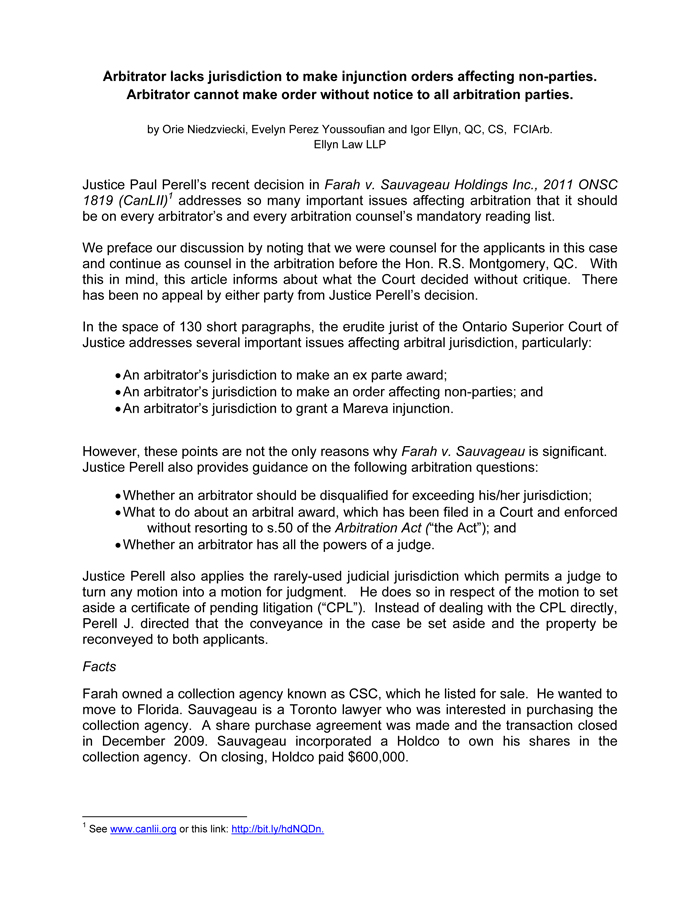Commercial Arbitration is a process which depends on the consent of the parties. Only parties to the arbitration agreement can be affected by the arbitrator’s award. In this article, the authors review a recent judgment of the Ontario Superior Court of Justice which set aside an arbitrator’s award which made orders against third parties.The case concerned a business transaction for the sale of a collection agency. The sale closed but the purchaser, a corporation operated by a lawyer, thought it had been defrauded by the seller. The purchaser commenced a claim in court attempting to place a certificate of pending litigation on the seller’s house but then decided that he wished to arbitrate the dispute under the arbitration clause in the sale agreement.
After the arbitrator was consensually selected, the purchaser made a motion to the arbitrator without notice to seek a Mareva Injunction. A Mareva injunction is an order which restrains the defendant from disposing of his assets until the lawsuit has been concluded. It is typically obtained where there is reason to fear that the defendant will remove his assets from the jurisdiction before the case is completed and thereby avoid enforcement of any judgment which may be obtained. Typically, the order is also directed at banks and others who have financial dealings with the defendant, in the hope that they will freeze the defendant’s accounts.
In the case discussed in the article, the claimant sought a Mareva injunction from the arbitrator without notice to the defendant. The arbitrator granted the order including an order directing banks to freeze the defendant’s accounts. The claimant then filed the arbitrator’s order in the court office without following the proper procedure to turn it into a court order. On a motion to the Court, the judge, the Hon. Justice Paul Perell, discussed in detail the principles affecting arbitral awards made without notice and whether an arbitrator can make an order which affects parties who are not involved in the arbitration. After an exhaustive analysis which is explained in the article, the Court decided that the arbitral order had to be set aside. The judge also called the arbitral award filed in the court office “bogus” because the correct procedure had not been followed.
Orie Niedzviecki, a partner of Ellyn Law LLP Business Litigation and Arbitration Lawyers, Toronto, and Evelyn Perez Youssoufian, an associate of the firm, were counsel for the seller. Assisted by Igor Ellyn, QC, CS, FCIArb., Senior Partner of Ellyn Law LLP, they explain the issues and legal principles enunciated by Justice Perell in this article.
